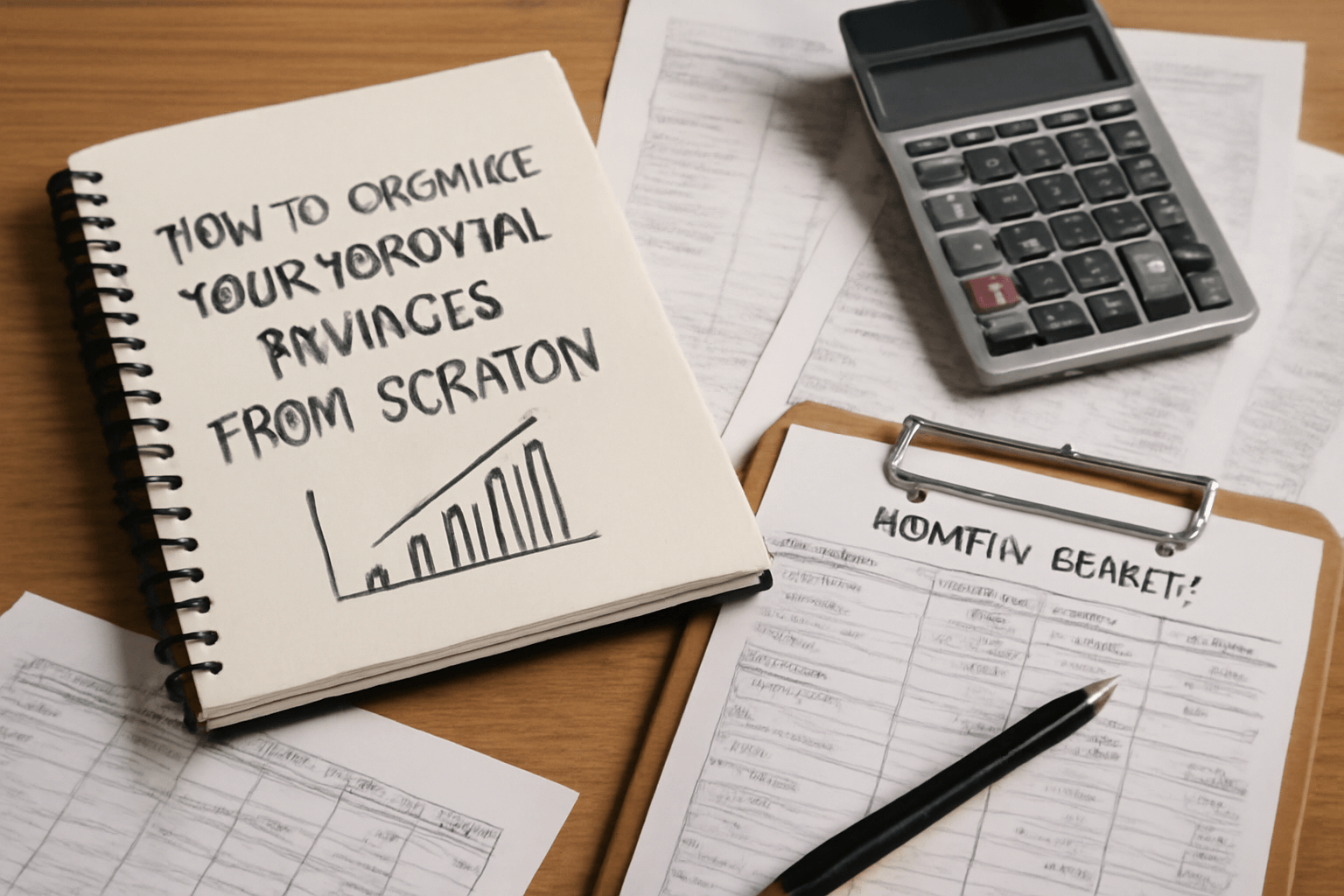Getting your personal finances under control can feel overwhelming, especially if you’re starting from zero. Whether you’ve never tracked your expenses or you’re trying to escape the paycheck-to-paycheck cycle, the good news is: it’s entirely possible. With the right steps, you can take control of your money and begin building a secure financial future.
Understand Where You Stand Financially
Before making any changes, it’s essential to have a clear picture of your current financial situation.
List All Your Income Sources
Start by listing every source of income you have. This could include:
- Salary or wages
- Freelance or side hustle income
- Government benefits
- Rental income
- Any other consistent inflows of money
Make sure to calculate your monthly net income that’s what you take home after taxes and deductions.
Calculate Your Monthly Expenses
Next, list your regular expenses. Break them down into two categories:
Fixed expenses:
- Rent or mortgage
- Utilities
- Insurance
- Loan payments
Variable expenses:
- Groceries
- Dining out
- Transportation
- Subscriptions
- Entertainment
Use a notebook, spreadsheet, or a free budgeting app to track every dollar. For the first month, your goal is just awareness—understanding where your money actually goes.
Create a Realistic Monthly Budget
Now that you’ve gathered data, it’s time to build a plan.
Choose a Budgeting Method
There are several effective budgeting strategies for beginners:
- 50/30/20 Rule:
- 50% needs (rent, food, bills)
- 30% wants (entertainment, eating out)
- 20% savings and debt repayment
- Zero-Based Budgeting:
- Assign every dollar a job until your balance is $0
Choose what fits your personality and income type.
Track and Adjust
Your first few months of budgeting may not be perfect. That’s normal. What matters most is consistency. Adjust as needed, but always aim to spend less than you earn.
Start an Emergency Fund
Unexpected expenses will come—medical bills, car repairs, or even a sudden job loss.
Why You Need One
An emergency fund is your safety net. It prevents you from using high-interest credit cards or loans when things go wrong.
How to Build It
- Start small. Set a goal of $500 to $1,000
- Save a little from each paycheck
- Keep it in a separate savings account (preferably one that earns interest)
- Treat it as untouchable except for real emergencies
Eventually, you should aim for 3 to 6 months of living expenses in your emergency fund.
Get a Handle on Debt
Debt can be a major obstacle in personal finance, especially high-interest debt like credit cards.
List All Debts
Write down:
- The amount owed
- The interest rate
- The minimum payment
- The lender
Choose a Repayment Strategy
Two popular methods for debt repayment:
- Debt Snowball: Pay off the smallest debt first for quick wins
- Debt Avalanche: Pay off the debt with the highest interest rate first to save more money over time
Both work—choose the one that keeps you motivated.
Set Financial Goals
Goals give you purpose and motivation to stay on track.
Short-Term Goals
- Save $1,000
- Pay off a credit card
- Build a basic budget
Long-Term Goals
- Save for a home
- Build a retirement fund
- Start investing
Be specific and write your goals down. A goal without a plan is just a wish.
Start Saving and Investing
Once you’ve stabilized your budget and begun saving, it’s time to make your money grow.
Automate Savings
Set up automatic transfers to a savings account every time you get paid. Even $10 a week adds up over time.
Learn the Basics of Investing
For beginners, consider:
- Index funds and ETFs
- Retirement accounts (like IRAs or 401(k)s)
- Robo-advisors (for hands-off investors)
Investing isn’t just for the wealthy. Starting early even with small amounts can make a big difference thanks to compound interest.
Avoid Common Mistakes
When you’re just getting started, it’s easy to fall into traps.
Don’t Rely on Credit Cards for Emergencies
Use your emergency fund, not a credit card.
Don’t Overspend Just Because You Got a Raise
Lifestyle inflation is real. Keep expenses steady and increase savings instead.
Don’t Skip Budgeting Because It Seems Boring
Budgeting gives you freedom and control, not restriction.
Use Free Tools and Resources
Technology can make money management easier.
- Mint, YNAB (You Need a Budget), or Goodbudget for budgeting
- Spreadsheets for custom tracking
- Personal finance blogs and YouTube channels for learning
- Books like The Total Money Makeover or Your Money or Your Life
There’s no shortage of great, free information to help you grow.
Final Thoughts: Small Steps Lead to Big Change
You don’t need to master everything at once. What matters is that you start. Organizing your personal finances is about building habits habits that compound into peace of mind, freedom, and long-term success.
Each small decision you make today tracking your expenses, skipping a needless purchase, setting aside $20—brings you closer to financial stability. You’ve got this. And remember, it’s not about being perfect, it’s about being consistent.
